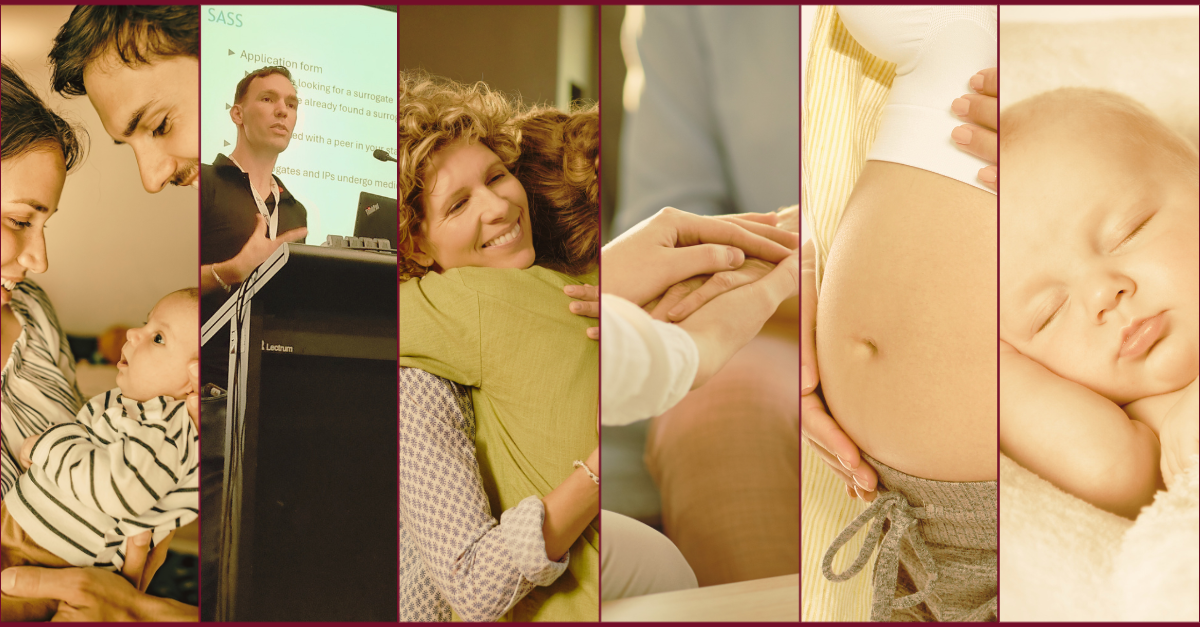I deal with singles and couples every day of the week who require independent professional support to create a family. Some of them have no womb, others have failed IVF or are on treatments making carrying a baby too dangerous. Many more are gay men, even single heterosexuals.
One couple I saw this week are typical of the complexities of this area. The husband is an Indian national. The wife is Thai. But they live in Australia. For medical reasons, they require a surrogate and egg donor. Australia has poor access to both, with egg donor wait times of over a year. Add the need for an Indian donor and Australian clinics draw a blank.
It is likely they will select eggs from a Malaysian egg bank. Create embryos in Georgia and engage with a Kazakhstani surrogate. With the delivery 14,000 km distant in Georgia.
Why such a complicated process?
Keep reading……
Once upon a time, intended parents requiring surrogacy, and unable to find a surrogate locally, engaged in the USA or ventured to South East Asia. Mostly to India and Thailand, with the braver engaging in Nepal or Cambodia. But with these markets closed to foreigners, from 2016, Ukraine – a country of over 41 million – quickly took up the slack. Ukraine became a vast hub for heterosexual married couples needing help.
Russia’s attacks in Ukraine have put unprecedented pressure not only on surrogacy in Ukraine, but on the ability to access surrogacy globally. In short, it has put far greater pressure on the small number of countries which do have legally protected programs.
One of these is Georgia – a nation of just 3.7 million. Similarly priced to Ukraine, the country’s agencies are struggling to meet the demand for surrogates. Several have turned to recruiting Kazakhstani women, flying them 3000 kilometres west to Tbilisi to undertake embryo transfer. If successful, they return home for five or six months – if not they remain for further embryo transfers. During their third trimester the plan is to fly them back to Georgia in preparation for birth in Tbilisi.
It is not just Georgia which is bringing in such ‘migrant workers’. The strategy has been used for several years by surrogacy agencies in unregulated countries such as North Cyprus and Thailand. (It unravelled alarmingly when nations closed their borders during the covid pandemic).
The inevitable fall out – those eligible to carry as a surrogate have wised up to the reality that in this overstretched space they have the power to ask for increasing amounts of compensation.
IVF clinics in Greece, another of the few countries which can legally offer surrogacy to foreigners, caters for a somewhat wealthier demographic than Georgia. Faced with a local culture that doesn’t really understand surrogacy – Greek clinics are enticing Georgian surrogates to relocate to Greece through more attractive compensation – around €20,000 compared to the €15,000 they might earn locally.
There have always been challenges and obstacles in donor and surrogacy journeys. I have had to manage extraordinary challenges over the past decade – with both geo-political and environmental factors impacting family formation pathways.
Fortunately Growing Families intimate knowledge of so many aspects and connections with experts globally has allowed us to guide intended parents through what might otherwise be a minefield.
More than ever, vulnerable intended parents need expert guidance to minimise the risks and provide some certainty. Growing Families independent guidance and support is based on hugely varying circumstances and needs.
It is a difficult journey, so reach out now to give you peace of mind when you most need it.
I deal with singles and couples every day of the week who require independent professional support to create family. Some of them have no womb, others have failed IVF or are on treatments making carrying a baby too dangerous. Many more are gay men, even single heterosexuals.
One couple I saw this week are typical of the complexities of this area. The husband is an Indian national. The wife is Thai. But they live in Australia. For medical reasons, they require a surrogate and egg donor. Australia has poor access to both, with egg donor wait times of over a year – add the need for an Indian donor and Australian clinics draw a blank.
Instead it is likely they will select eggs from a Malaysian egg bank, create embryos in Georgia and engage with a Kazakhstani surrogate to carry their child with the delivery 14,000 km distant in Georgia. Why such a complicated process? Keep reading……
Once upon a time, intended parents requiring surrogacy and unable to find a surrogate locally engaged in the USA or ventured instead to South East Asia– mostly to India and Thailand, with the braver engaging in Nepal or Cambodia. But with these markets long closed to foreigners, from 2016, Ukraine – a country of over 41 million – quickly took up the slack, becoming a vast hub for heterosexual married couples needing help.
Russia’s attacks in Ukraine have put unprecedented pressure not only on surrogacy in Ukraine, but on the ability to access surrogacy globally. In short, it has put far greater pressure on the small number of countries which do have legally protected programs.
One of these is Georgia – a nation of just 3.7 million. Similarly priced to Ukraine. The country’s agencies are struggling to meet the demand for surrogates. Several have turned to recruiting Kazakhstani women. Flying them 3000 kilometers west to Tbilisi to undertake embryo transfer. If successful, they return home for five or six months – if not they remain for further embryo transfers. During their third trimester the plan is to fly them back to Georgia in preparation for birth in Tbilisi.
It is not just Georgia which is bringing in such ‘migrant workers’. The strategy has been used for several years by surrogacy agencies in unregulated countries such as North Cyprus and Thailand. (It unravelled alarmingly when nations closed their borders during the covid pandemic).
The inevitable fall out – those eligible to carry as a surrogate have wised up to the reality that in this overstretched space they have the power to ask for increasing amounts of compensation.
IVF clinics in Greece, another of the few countries which can legally offer surrogacy to foreigners, caters for a somewhat wealthier demographic than Georgia. Faced with a local culture that doesn’t really understand surrogacy – Greek clinics are enticing Georgian surrogates to relocate to Greece. Through more attractive compensation – around €20,000 compared to the €15,000 they might earn locally.
There have always been challenges and obstacles in donor and surrogacy journeys. I have had to manage extraordinary challenges over the past decade – with both geo-political and environmental factors impacting family formation pathways.
Fortunately Growing Families intimate knowledge of so many aspects and connections with experts globally has allowed us to guide intended parents through what might otherwise be a minefield.
More than ever, vulnerable intended parents need expert guidance to minimise the risks and provide some certainty. Growing Families independent guidance and support is based on hugely varying circumstances and needs.
It is a difficult journey, so reach out now to give you peace of mind when you most need it.
If you are in the United Kingdom or Ireland and would like to learn more about the possibilities and hurdles of surrogacy in Europe, please join us at our April EU event in London


